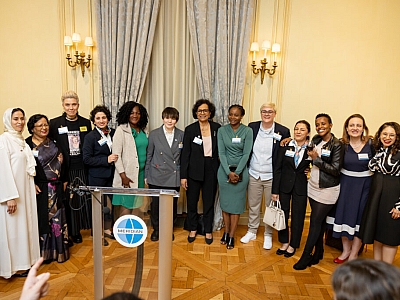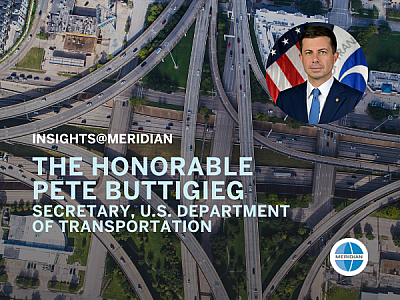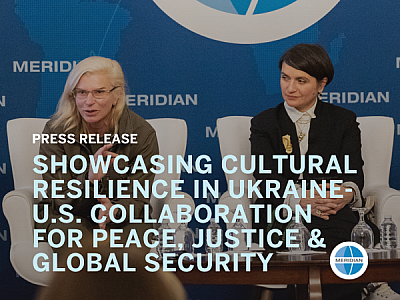Climate, Labor, and Collaboration: How International Exchange Can Bolster a Just Transition to a Green Economy
Promoting Collaboration to Tackle Climate Change
By Colin Blais, Senior Program Associate, International Visitor Leadership Program
April 1 marked the beginning of climate month, and with the 54th iteration of Earth Day approaching on April 22, a group of Swedish labor leaders made their way to the United States to be a part of an International Visitor Leadership Program (IVLP) focusing on the intersection of climate, labor, and the economy. As the world participates in a transition to cleaner forms of energy, the visitors sought to collaborate with American counterparts on low-carbon manufacturing, new low-carbon technology, and the state of labor unionism in low-carbon sectors.
At a glance, climate change might not seem to intersect with the labor force, but the transition to green energy has had a massive impact on the international economy and has directly affected laborers and union strategy. In West Virginia, a U.S. state that once had a vibrant coal mining industry, the green energy transition has left behind communities that do not focus on solar, wind, natural gas, and other cleaner forms of energy that have gained merit in the energy economy. As a result, West Virginian blue-collar workers in this sector became marginalized and now suffer from higher-than-average rates of poverty in the USA. The marginalization and increased risk of poverty suffered by West Virginians is not a unique problem: communities around the world that once relied on coal and other forms of high-emission energy are grappling with similar fates.
As this transition illuminates, workers need to be at the center of any significant economic change, especially in the case of energy. And this is where unions have adapted to protect the individuals who once fueled the global economy.
The international visitors from Sweden met with the International Brotherhood of Electrical Workers (IBEW) in Washington, DC -- the ninth largest union in the U.S. The meeting focused specifically on union efforts to combat the changing climate while protecting their members. In West Virginia, IBEW partnered with an organization called Solar Holler, which is working to install photovoltaic solar panels throughout the state. IBEW created an apprenticeship pathway for West Virginian electricians to ensure long-term job stability and crucial industry knowledge for installing and maintaining solar panels. Programs like this are invaluable to creating a fair transition to a green economy, with workers at the center.
The IVLP visitors were primarily members of the Swedish think tank Katalys, which is an independent trade union institute that conducts investigative research and advocacy. They focus mainly on the Swedish economy, welfare, and labor market. Other participants in this IVLP worked for assorted labor unions and organizations involved in activities similar to Katalys's. One of Katalys' many roles is to protect workers while advocating for impactful climate change policy, which relates closely to IBEW's work in ensuring justice for workers in the green transition.
The group met with organizations in New York City, such as the Roosevelt Institute, and organizations in Philadelphia, such as the Kleinman Center for Energy Policy and the Sustainable Business Network, to see how their peers and counterparts in the U.S. conduct government advocacy to advance meaningful policy solutions.
Though Sweden and the U.S. don't share many similarities, the climate crisis serves as a uniting international issue of this time. Regardless of border or government, the rising impacts of climate change will impact labor, health, safety, and countless other areas of concern for decades to come. This specific program emphasizes the need for international collaboration to solve this global issue.
The knowledge exchanged between these Swedish and American thought leaders will have a ripple effect on our respective policy perspectives moving forward. The value of sharing ideas and solutions for coping with and fighting climate change cannot be understated, and this program is a shining example of how this collaboration can directly impact the future of policy and advocacy.


